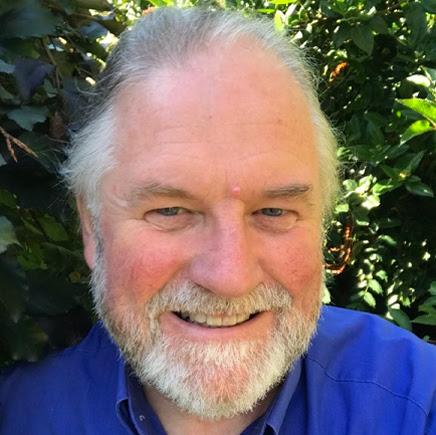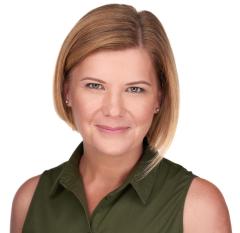In a world increasingly connected by technology but often detached from personal and natural grounding, Tom Larkin brings a refreshing perspective. As a dedicated Focusing Coordinator, Focusing-oriented therapist and TIFI board member, Tom shared his journey and insights into how Focusing has transformed his own life and how it guides his work with others. This conversation reveals his approach to Focusing, his efforts to bring it into the lives of children and young people, and his hopes for its future within the global community.
Focusing as a Spiritual Pathway
Tom describes Focusing not just as a technique, but as a spiritual practice which strengthens connections with oneself and with nature. He acknowledges that his introduction to Focusing was serendipitous, beginning with his mentor, Mairead O’Brien. She had trained under a network of practitioners who brought Focusing to Ireland. “It’s a small but vibrant community,” he reflects, crediting much of its public presence to the Irish Focusing Network’s website, a project hosted by Elaine Goggin. “Elaine has done a wonderful job making the community look professional.”
Over the years, Tom has drawn on various influences, blending practices to suit his own style. “I’m a bit of a magpie,” he jokes, describing how he draws from a range of teachers and techniques. Like his mentor, he views Focusing as a pathway to spiritual depth and self-awareness; a practice that aligns one’s inner experiences with the outer world.
The Power of Nature in Focusing
One of Tom’s passions is working with children and young people, guiding them to reconnect with nature as a form of self-discovery and healing. With a background as a forest therapy guide, he has crafted sessions that take children and young people, often bound by technology and social pressures, into natural settings. “Today’s children (and adults too) face a lot of disconnection due to technology and societal pressures,” he explains. For many young people, the experience of simply sitting among trees, listening to birds, and engaging with their senses is transformative. He believes that “nature offers them a way to ground themselves, to reconnect with their bodies and emotions without judgment.”
In guiding children and young people, Tom notices a trend of heightened anxiety in young people. He sees this anxiety as stemming from an overload of information and expectations, whether from social media, global crises, or environmental concerns. For him, nature-based Focusing provides a rare opportunity for clients – whether young or grown-up – to unplug and tune into themselves. While not all kids respond to the practice immediately, those who do often leave with a new sense of peace and resilience.
From Practitioner to Coordinator: A Global Focusing Vision
Tom’s role as a new board member at TIFI has extended his personal practice to a global stage, where he’s part of a team holding a vision for Focusing’s future. His transition into this leadership role was gradual. Originally drawn to Focusing as a meditative practice, he didn’t aspire to become a Coordinator until his mentor Mairead encouraged him to consider it.
As part of the board, Tom balances the need for structure with the organic, unfolding nature of Focusing. He finds himself inspired by Eugene Gendlin, the founder of Focusing, who believed it could improve all aspects of life. Tom describes the board’s role as “holding a vision for the whole practice – past, present, and future – honoring Gendlin’s legacy while supporting a worldwide network of practitioners.”
The global reach of Focusing has increased due to online connectivity, allowing international gatherings like the Focusing Weeklong to flourish. Tom was part of the organizing team for the Weeklong when COVID-19 hit, forcing it to change from an in-person event to being online. During his time as part of the leadership, it then moved into operating as a hybrid model, with in-person gatherings alongside virtual participation. Tom was glad to see this change make it more accessible to people around the world.
Focusing as a Lifeline in Personal Challenges
On a personal level, Focusing has helped Tom develop a kinder, more compassionate relationship with himself. He remembers his pre-Focusing life as being marked by self-criticism and harsh judgment. “I used to be very critical of myself, almost to the point of self-hatred,” he confides. Through Focusing, he learned to question these inner voices, treating them with curiosity rather than hostility. “Now I can be more compassionate with myself, and even if that old critic shows up, I know how to meet it with acceptance.”
This self-compassion became especially crucial when he was diagnosed with an aggressive form of cancer. “I was terrified,” he recalls. Focusing allowed him to sit with his fear rather than being consumed by it, helping him approach his surgery with a sense of peace. “I came to a place of acceptance, a feeling that everything would be okay, no matter the outcome.” This calmness carried him through treatment and recovery, reinforcing his belief in Focusing’s power to ground people through life’s most difficult experiences.
A Vision for Focusing’s Future
Looking forward, Tom hopes that Focusing can become a widely accessible practice that empowers people worldwide. He believes that at its core, Focusing fosters resilience, self-awareness, and compassion - qualities much needed in today’s interconnected but often overwhelming world. By connecting individuals with themselves and with nature, Focusing offers an antidote to the stressors of modern life.
In closing, Tom reflects on his ongoing journey: “We can’t control everything, but we can nurture change within ourselves and our communities. That’s the real gift Focusing offers—a pathway to peace and presence, no matter what the world throws at us.” His words underscore his commitment to spreading this practice and cultivating connections that bridge not only people and places but also the inner and outer landscapes of our lives.
Reflecting on my interview with Tom, I realized how much the conversation felt like a cautious walk in the forest. At first, we were both a bit reserved, feeling our way through each word like stepping carefully over unseen roots. Gradually, we began to sense each other's rhythm, much like acclimating to the quiet noises and dappled light filtering through the trees. Over time, a natural ease emerged, allowing our conversation to deepen comfortably, a reminder of how connections - like nature - unfold best at their own pace.
Krisztina Svéd is a Certified Focusing Professional, Focusing Trainer and Focusing-Oriented Therapist. She integrates Focusing into her work as a mental health counselor and trainer, helping individuals explore their inner resources and develop personal growth. Krisztina is also a PhD researcher at Corvinus University of Budapest in Hungary, specializing in organizational wellbeing.


